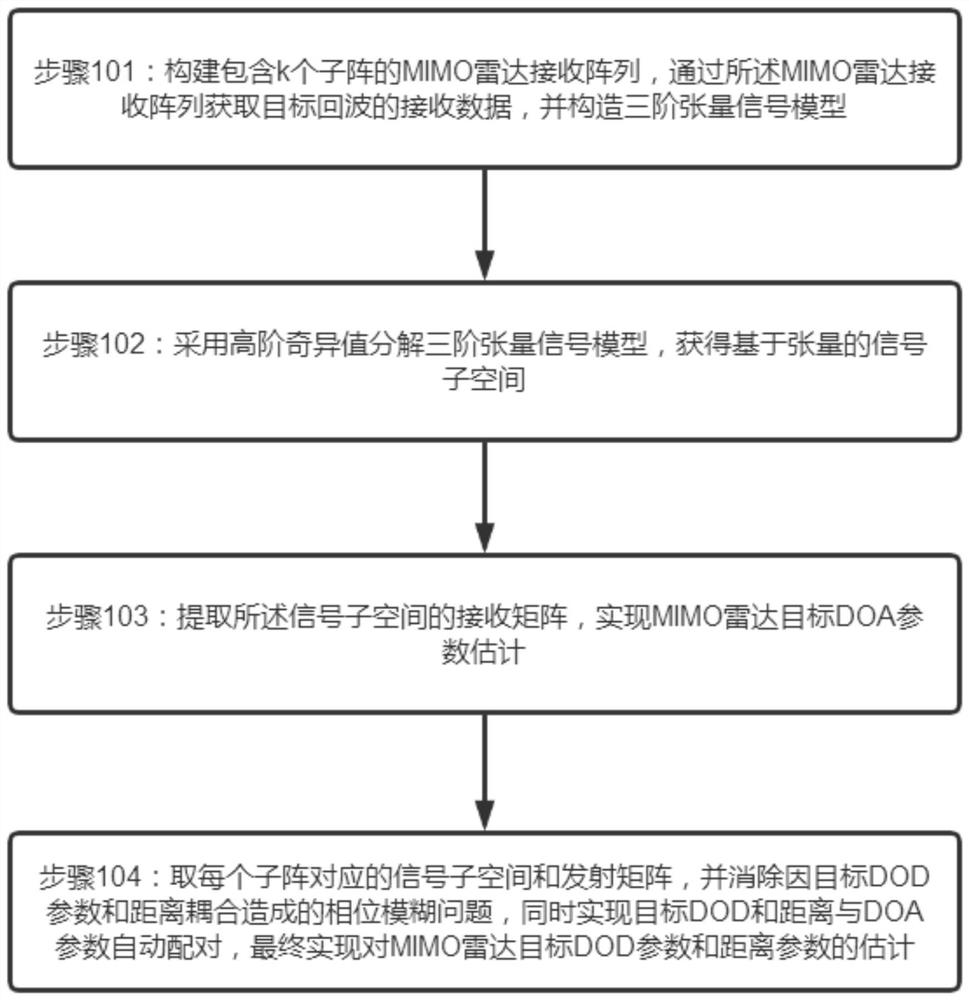Radar angle and distance estimation method based on tensor high-order singular value decomposition
A high-order singular value, distance estimation technology, applied in measurement devices, radio wave measurement systems, radio wave reflection/re-radiation and other directions, can solve problems such as application performance impact, parameter matching error, poor performance, etc.
- Summary
- Abstract
- Description
- Claims
- Application Information
AI Technical Summary
Problems solved by technology
Method used
Image
Examples
Embodiment Construction
[0084] In order to better understand the technical content of the present invention, specific embodiments are provided below, and the present invention is further described in conjunction with the accompanying drawings.
[0085] see figure 1 , a radar angle and distance estimation method based on tensor high-order singular value decomposition, including the following steps:
[0086] Step 101: Construct a MIMO radar receiving array comprising k sub-arrays, obtain the received data of the target echo through the MIMO radar receiving array, and construct a third-order tensor signal model;
[0087] see Figure 2-Figure 3 , where the number of receiving array antennas of the bistatic frequency-controlled array MIMO radar is preset to be N, the number of receiving array antennas is M, and the receiving array is divided into K sub-arrays. The transmitting waveforms between the transmitting antennas are orthogonal to each other. The transmit frequency of the mth antenna of the kth s...
PUM
 Login to View More
Login to View More Abstract
Description
Claims
Application Information
 Login to View More
Login to View More - R&D Engineer
- R&D Manager
- IP Professional
- Industry Leading Data Capabilities
- Powerful AI technology
- Patent DNA Extraction
Browse by: Latest US Patents, China's latest patents, Technical Efficacy Thesaurus, Application Domain, Technology Topic, Popular Technical Reports.
© 2024 PatSnap. All rights reserved.Legal|Privacy policy|Modern Slavery Act Transparency Statement|Sitemap|About US| Contact US: help@patsnap.com










